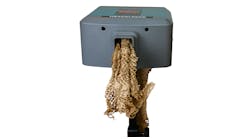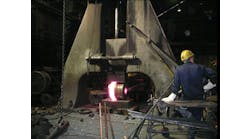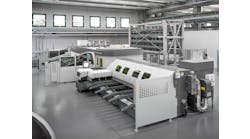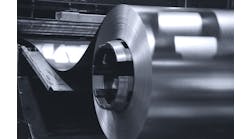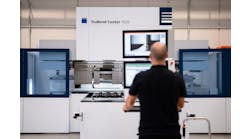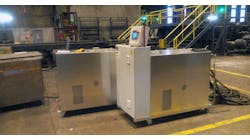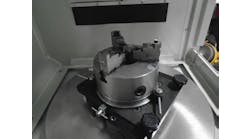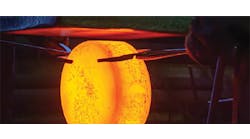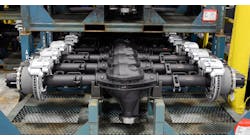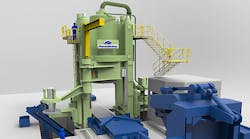Rotek Incorporated reports its multimillion-dollar expansion will be completed on schedule, ready to start service on September 1. The project involves adding a new RAW 200/260 ring mill to the Aurora, OH, operation, so that the plant’s current capabilities for rolled rings covers the range from 15 to 155 in. OD.
The new products are described as “midsize diameter” rings, typically involved in equipment designed for off-shore oil platforms, oil pipelines, large crane structures, and tool and die machinery. “By strengthening our capabilities in this critical diameter range, we are better able to provide faster delivery times to customers in the construction equipment as well as oil and gas markets which are vital to our business,” stated Mark Girman, CEO of Thyssenkrupp Rotek.
No specific value has been reported for the current project, and a spokeswoman for Rotek explained that the project had not been announced previously.
RAW 200/260 is a ring mill design offered by SMS group, though that equipment builder has not reported its involvement in the Rotek project. In an earlier (2008) project at Rotek, SMS supplied a larger, RAW 400/400/6000 ring mill there.
Rotek is an operating unit of Thyssenkrupp and one of North America’s largest manufacturers of slewing bearings, including ball and roller slewing bearings and wire-race slewing bearings. Another Thyssenkrupp business, Rothe Erde, recently ordered a new upsetting and piercing press for ring blanks from Siempelkamp, to be installed at its Dortmund Works in Germany.
